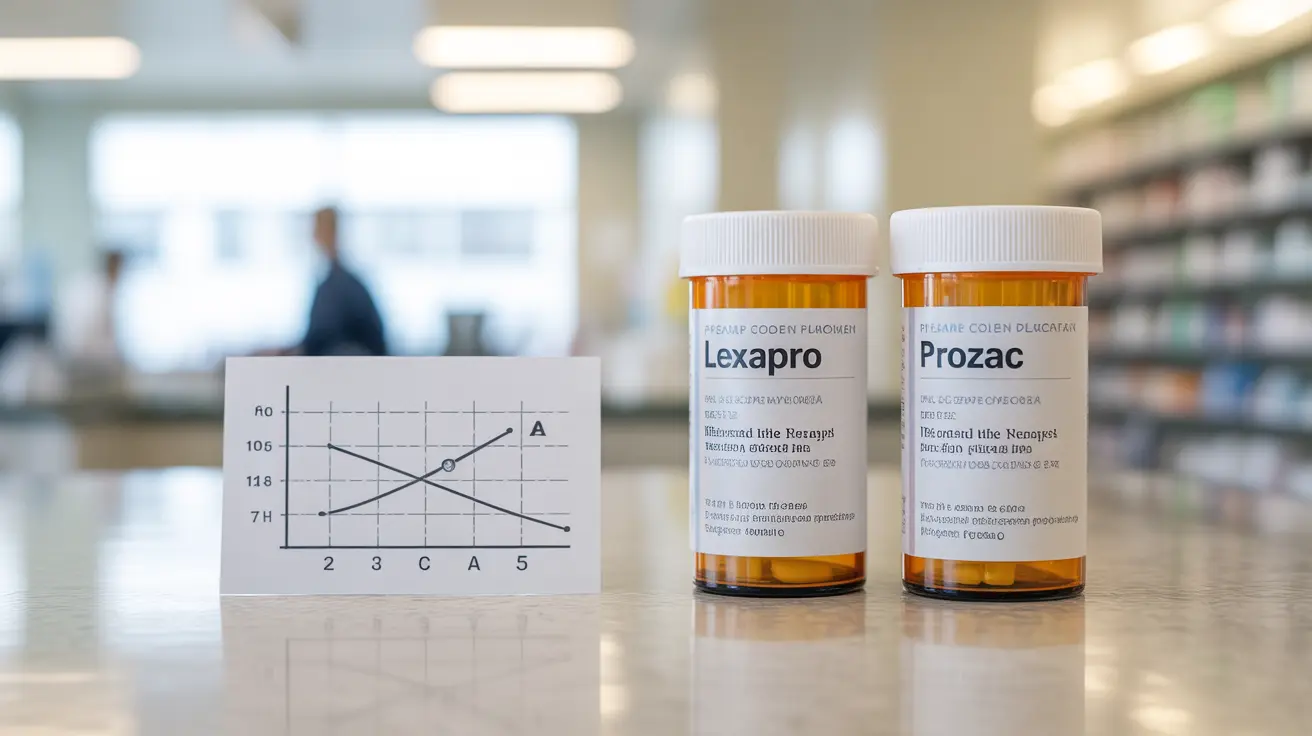When it comes to treating depression and anxiety, Lexapro (escitalopram) and Prozac (fluoxetine) are two commonly prescribed selective serotonin reuptake inhibitors (SSRIs). While both medications work by increasing serotonin levels in the brain, they have distinct characteristics that may make one more suitable than the other for certain individuals.
Understanding the key differences between these medications can help patients and healthcare providers make more informed decisions about treatment options. Let's explore how these two antidepressants compare in terms of effectiveness, side effects, and specific use cases.
How These Medications Work
Both Lexapro and Prozac belong to the SSRI class of antidepressants, but they have unique molecular structures and slightly different mechanisms of action. Lexapro is considered more selective in its targeting of serotonin receptors, while Prozac affects multiple neurotransmitter systems.
This difference in selectivity can influence both their effectiveness and side effect profiles. Lexapro typically begins working within 1-2 weeks, while Prozac may take 4-6 weeks to reach full effectiveness.
Effectiveness in Treating Depression and Anxiety
Research suggests that both medications are effective in treating major depressive disorder (MDD) and anxiety disorders. Lexapro is often praised for its targeted approach, which may result in fewer side effects for some patients. Prozac, being one of the oldest SSRIs, has a longer track record and may be particularly effective for severe depression.
Treatment Response Rates
Clinical studies indicate that Lexapro may have a slightly higher response rate in treating depression, with approximately 70% of patients showing improvement. Prozac shows similar effectiveness, with about 65% of patients responding positively to treatment.
Side Effect Profiles
Both medications can cause similar side effects, but their occurrence rates differ:
- Lexapro commonly causes:
- Nausea
- Sleep changes
- Sexual side effects
- Mild weight changes
- Dry mouth
- Prozac commonly causes:
- Insomnia
- Nervousness
- Appetite changes
- Headaches
- Digestive issues
Dosing and Administration Differences
Lexapro typically starts at 10mg once daily, with a maximum dose of 20mg daily. Prozac usually begins at 20mg daily and can be increased to 80mg daily in some cases. The simpler dosing schedule of Lexapro may be preferable for some patients.
Special Considerations for Different Health Conditions
Both medications have specific advantages for certain conditions. Lexapro is FDA-approved for generalized anxiety disorder, while Prozac has additional approvals for conditions like bulimia and OCD. Patients with bipolar disorder should use either medication with caution and only under close medical supervision.
Frequently Asked Questions
What are the most common side effects of Lexapro compared to Prozac?
Lexapro typically causes milder side effects, with nausea and sexual dysfunction being most common. Prozac more commonly causes sleep disturbances and nervousness, though both medications can cause similar side effects at varying rates.
How does Lexapro differ from Prozac in treating anxiety and depression?
Lexapro is more selective in targeting serotonin receptors, potentially leading to faster relief of symptoms with fewer side effects. Prozac has a broader effect on neurotransmitters and may be more effective for severe depression cases.
Can Lexapro or Prozac cause significant weight gain, and which is more likely?
Both medications can affect weight, but Lexapro tends to cause less significant weight changes. Prozac may initially cause weight loss, but some patients experience weight gain with long-term use.
What are the key differences in dosing and administration between Lexapro and Prozac?
Lexapro has a simpler dosing schedule, typically 10-20mg once daily. Prozac offers more flexible dosing options, ranging from 20-80mg daily, and may be taken weekly in some formulations.
Is Lexapro or Prozac generally considered safer for individuals with certain health conditions like OCD or bipolar disorder?
Prozac has FDA approval for OCD treatment, making it a preferred choice for this condition. Both medications require careful monitoring in bipolar disorder patients due to the risk of triggering manic episodes. Individual medical history and specific symptoms should guide medication choice.




